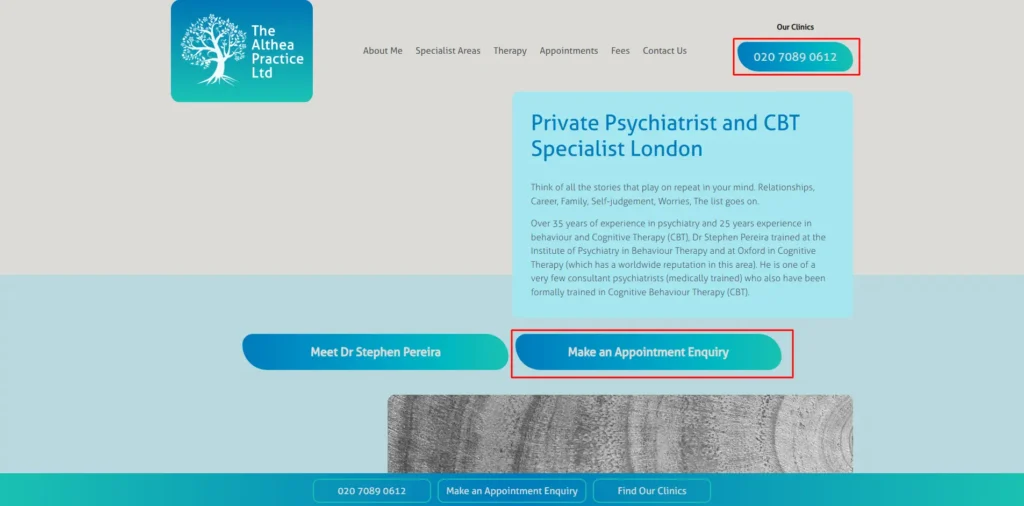Find the best stress management techniques to help you feel calm and balanced daily. Learn simple ways to reduce stress naturally, like deep breathing, regular exercise, meditation, and getting enough sleep. These easy tips support your mental health and improve your daily life. Whether at home or work, these stress relief methods are practical and effective for anyone looking to live a healthier, happier life.
Stress management techniques for students
Stress management techniques for students are helpful ways to stay calm, focused, and healthy during busy school life. Simple methods like deep breathing, time management, regular breaks, and staying active can reduce stress and improve mental well-being. Getting enough sleep and talking to someone you trust also helps. These easy tips support better learning and help students handle pressure with confidence. Stay balanced and do your best every day.
Why Stress Management Is Important for Students
Stress management is important for students because it helps them stay healthy, focused, and do well in school. Too much stress can affect learning, sleep, and mental health. By managing stress, students can improve concentration, feel more confident, and enjoy their studies. Using effective stress management techniques can improve employee well-being and may help reduce small business health insurance costs over time.
Simple habits like deep breathing, exercise, and good time management make a big difference. Learning stress management early leads to a happier and more successful student life.
Why Are College Students So Depressed?
Many college students feel depressed due to academic pressure, lack of sleep, social anxiety, and being away from home. Mental health challenges like stress, loneliness, and financial worries can build up over time. Depression in college is common, but understanding the reasons can help students get the support they need. Early help, self-care, and talking to someone can make a big difference in their mental well-being.
Age Group and Depression Among College Students
| Age Group | Depression Risk Level | Common Causes |
| 18–19 | High | Adjustment to college, homesickness |
| 20–22 | Very High | Academic pressure, relationship issues |
| 23–25 | Moderate | Career worries, future uncertainty |
| 26+ | Moderate to High | Balancing study, work, and personal life |
Common Causes of Student Stress
Student stress is common and can be caused by many daily challenges. The most common causes include heavy homework, exam pressure, lack of sleep, time management issues, and high expectations. Other factors like equivalent pressure, part-time jobs, and family problems can also increase stress levels. Understanding these causes helps students find better ways to manage and stay focused, healthy, and successful in their studies.
Among High School Students
High school students often face stress from many sources. Common causes of student stress include exam pressure, homework load, fear of failure, and time management problems. Many students also feel stress from peer pressure, family expectations, and planning for college.
These challenges can affect their mental health and school performance. Understanding what causes stress in high school helps students find healthy ways to cope and stay focused on their goals.
Among College Students
College students often experience stress due to academic pressure, deadlines, and exams. Common causes of student stress among college students include managing a busy schedule, financial worries, lack of sleep, and being away from family.
Social pressure, part-time jobs, and fear of failure can also increase stress levels. Understanding these stressors helps students take better care of their mental health and find balance during their college life.
Stress Management Techniques for Students
Stress management techniques are important for students because they help handle common causes of stress. These causes include exam pressure, lack of time, poor sleep, and high expectations.
Simple techniques like deep breathing, exercise, time management, and talking to someone can reduce stress. Using these methods helps students stay calm, focused, and healthy. Learning how to manage stress early supports better mental health and success in school.
Get Enough Sleep
Getting enough sleep is one of the most important stress management techniques for students. Lack of sleep can increase stress, lower focus, and affect mood and memory. When students sleep well, their minds and bodies feel more relaxed and ready to handle daily tasks.
Sleep helps reduce anxiety, improve learning, and boost overall health. Making sleep a daily habit is a simple but powerful way to manage student stress effectively.
Use Guided Imagery
Using guided imagery is a helpful stress management technique for students. It involves closing your eyes and imagining a peaceful place, like a beach or forest, to help the mind relax. This simple method can reduce stress, calm anxiety, and improve focus. Guided imagery helps students take a mental break from school pressure and feel more at ease. It’s an easy and powerful way to support mental and emotional health.
Exercise Regularly
Exercising regularly is a powerful stress management technique for students. It helps reduce anxiety, improve focus, and boost mood. Physical activity also increases energy and supports better sleep, which are important for managing school stress.
Students of all ages can benefit from regular exercise. Simple activities like walking, yoga, or sports can make a big difference. Staying active every day keeps the mind and body strong, helping students feel their best.
Recommended Daily Exercise by Age Group
| Age Group | Exercise Time per Day | Type of Exercise |
| 6–12 years old | 60 minutes | Running, cycling, and playground games |
| 13–17 years old | 60 minutes | Sports, dancing, strength, and cardio mix |
| 18–25 years old | 30–60 minutes | Walking, gym workouts, yoga, jogging |
Regular physical activity helps students handle stress better and live a healthier, more balanced life.
Build Your Support Network
Building a support network is an important stress management technique for students. Having friends, family, teachers, or counselors to talk to can make tough times feel easier. Sharing feelings, asking for help, and staying connected reduce stress and build confidence.
A strong support system helps students feel less alone, more understood, and better able to handle school pressure. Talking to someone you trust can improve both mental health and academic success.
Eat a Healthy Diet
Eating a healthy diet is a simple and effective stress management technique for students. Good food choices help keep the body strong and the mind sharp. Eating fruits, vegetables, whole grains, and drinking enough water can boost energy, improve focus, and reduce stress.
Avoiding too much sugar, caffeine, and junk food also helps students feel better. A balanced diet supports both mental and physical health, making it easier to handle school stress.
Try Mindfulness
Trying mindfulness is a helpful stress management technique for students. Mindfulness means paying full attention to the present moment without judgment. It helps calm the mind, reduce anxiety, and improve focus.
Simple practices like deep breathing, quiet sitting, or mindful walking can lower stress and bring peace. When students use mindfulness daily, they feel more relaxed and in control. It’s an easy way to stay mentally strong and focused in school.
Doctor For Stress and Depression
If you’re seeking expert care for stress and depression, Dr. Stephen Pereira stands out as one of the world’s leading psychiatrists. With over three decades of experience and more than 60,000 consultations, he has earned a reputation for excellence in mental health treatment.
Dr. Stephen Pereira, A Global Authority in Mental Health
Profile Overview
- Name: Dr. Stephen Pereira
- Clinic: Private practice in London, UK
- Experience: Over 35 years in psychiatry
- Specialization: Stress, depression, anxiety, and ADHD
- Notable Clients: High-profile individuals, including James Middleton
Treatment Philosophy
Dr. Pereira adopts a holistic, non-interventionist approach to mental health. He emphasizes the brain’s natural ability to heal, focusing on:
- Cognitive Behavioral Therapy (CBT): Helping patients understand and change thought patterns
- Mindfulness and Meditation: Incorporating daily practices to enhance mental resilience
- Lifestyle Modifications: Addressing sleep, nutrition, and exercise to support overall well-being
- Minimal Medication Use: Prescribing medication only when necessary
Booking an Appointment
While Dr. Pereira maintains a low public profile, appointments can be requested through professional referrals or by contacting his London clinic directly. Due to high demand, early booking is recommended.

- Go to this website and get an appointment: thealtheapractice.com
Patient Care Directions
Dr. Pereira provides comprehensive guidance to his patients, focusing on the following critical areas:
| Focus Area | Description |
| Cognitive Behavioral Therapy (CBT) | Techniques to identify and alter negative thought patterns. |
| Mindfulness Practices | Daily meditation and breathing exercises to reduce stress. |
| Sleep Hygiene | Establishing routines to improve sleep quality and duration. |
| Nutritional Guidance | Diet plans that support brain health and mood stabilization. |
| Physical Activity | Encouraging regular exercise to boost mental well-being. |
| Minimal Medication Use | Use pharmaceuticals only when other interventions are insufficient. |
Why Choose Dr. Stephen Pereira?
- Proven Expertise: Decades of experience with a diverse patient population.
- Personalized Care: Tailored treatment plans addressing individual needs.
Holistic Approach: Combining therapy, lifestyle changes, and minimal medication. - Respected Authority: Recognized for contributions to mental health practices and education.
Stress management techniques in Psychology
Stress management techniques in psychology are proven methods that help people cope with stress. These techniques include deep breathing, cognitive behavioral therapy (CBT), mindfulness, and relaxation exercises.
Psychology focuses on understanding how thoughts and emotions affect stress. By learning these skills, students and adults can manage their feelings, stay calm, and improve mental health. These simple, science-based techniques support a balanced and peaceful mind.
Why Is Relieving Stress Important?
Relieving stress is important because it helps protect your mental and physical health. Too much stress can cause anxiety, trouble sleeping, low energy, and even health problems. When you manage stress, you feel calmer, think more clearly, and handle daily tasks better.
Simple habits like exercise, deep breathing, and rest can make a big difference. Reducing stress helps you stay healthy, happy, and focused in everyday life.
Conclusion
In conclusion, using effective stress management techniques can greatly improve your mental and physical health. Simple habits like deep breathing, regular exercise, healthy eating, and getting enough sleep can make a big difference in how you handle stress. Adding mindfulness, meditation, or talking to a therapist can also help you feel more in control and relaxed.
By practicing these methods daily, you can reduce stress, stay calm under pressure, and enjoy a healthier, more balanced life. Remember, managing stress isn’t about avoiding challenges — it’s about learning how to respond to them in healthy ways. Start small, stay consistent, and make your well-being a top priority.
FAQs about Stress Management Techniques
1. What are stress management techniques?
Stress management techniques are tools or methods that help you reduce or cope with stress. These include breathing exercises, physical activity, mindfulness, meditation, time management, and healthy lifestyle choices like eating well and getting enough sleep.
2. Why is stress management important?
Managing stress is important because too much stress can affect your health, mood, and relationships. It can lead to problems like anxiety, depression, sleep issues, or high blood pressure. Learning how to manage stress helps you stay calm, focused, and healthy.
3. What are 5 effective techniques for managing stress?
Deep Breathing – Slows your heart rate and calms your mind.
Exercise – Helps release endorphins and reduce tension.
Mindfulness & Meditation – Keeps you in the present moment and reduces anxiety.
Time Management – Helps you feel more in control of your day.
Healthy Sleep Routine – Restores your mind and body.
4. Can stress management techniques make a difference?
Yes, absolutely. When practiced consistently, stress management techniques can improve your mood, focus, energy, and even your physical health. They help you respond to life’s challenges with more ease and confidence.
5. How often should I practice stress management techniques?
Daily is best. Even 10–15 minutes a day of breathing, stretching, or mindful meditation can make a noticeable difference. The key is consistency — small efforts every day are more effective than occasional big efforts.
6. Are there any stress management techniques that don’t take much time?
Yes! Simple techniques like deep breathing, listening to music, taking short walks, or doing a quick body scan can be done in just a few minutes. Even a short break to stretch or drink water can help reset your mind.
7. What’s the best stress management technique for work?
At work, try box breathing, short walks, to-do lists, or using apps like Headspace or Calm during breaks. These help you stay productive without feeling overwhelmed.







